Once Human is basically a Control MMO, which would have been pretty cool if it wasn't an awful survival game
I guess I'll just go back to waiting for Remedy to finish Control 2.
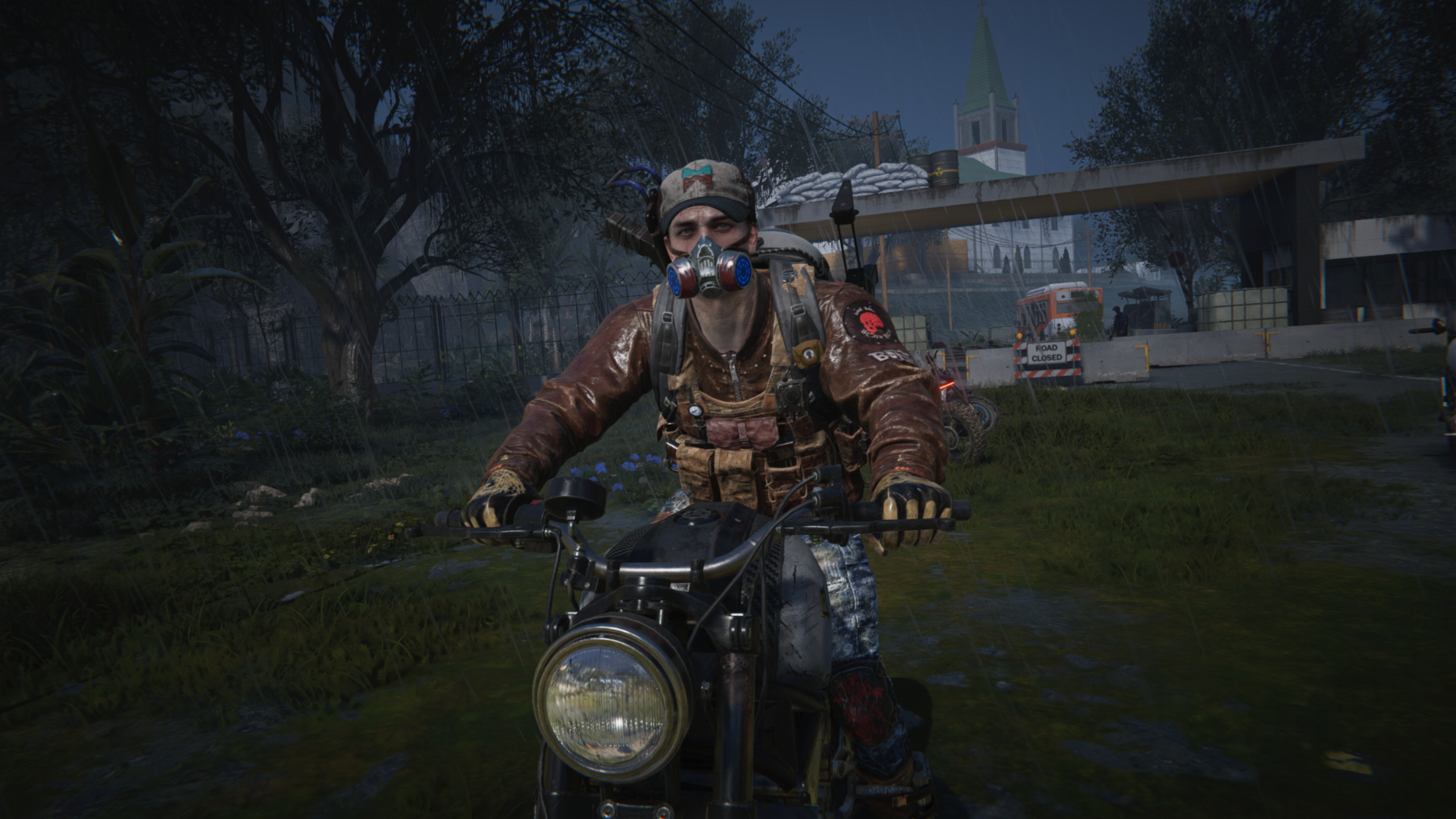
For my sins, I recently downloaded Once Human. It's a busy game at the moment—I had to see what the fuss was about. I always know I'll end up a bit disappointed whenever I embark on the Sisyphean endeavour of playing a crafty, base-building survival game, but sometimes the premise is enough to make me buy a ticket for the ride.
In Once Human's post-apocalyptic future, naughty scientists have screwed everything up and infected the world with Stardust—which sounds fanciful and fun but is in fact Very Bad News. Stardust has corrupted the world—the environment, animals, people, inanimate objects—and brought those pesky Old Gods to our doorstep. The reality-warping screwiness is extremely evocative of Remedy's Control, as is the heady mix of science, horror, and cosmic superpowers. But while Jesse's misadventures saw her trapped in the Oldest House, this crisis is of the planetary variety. It's a big ol' clusterfuck.
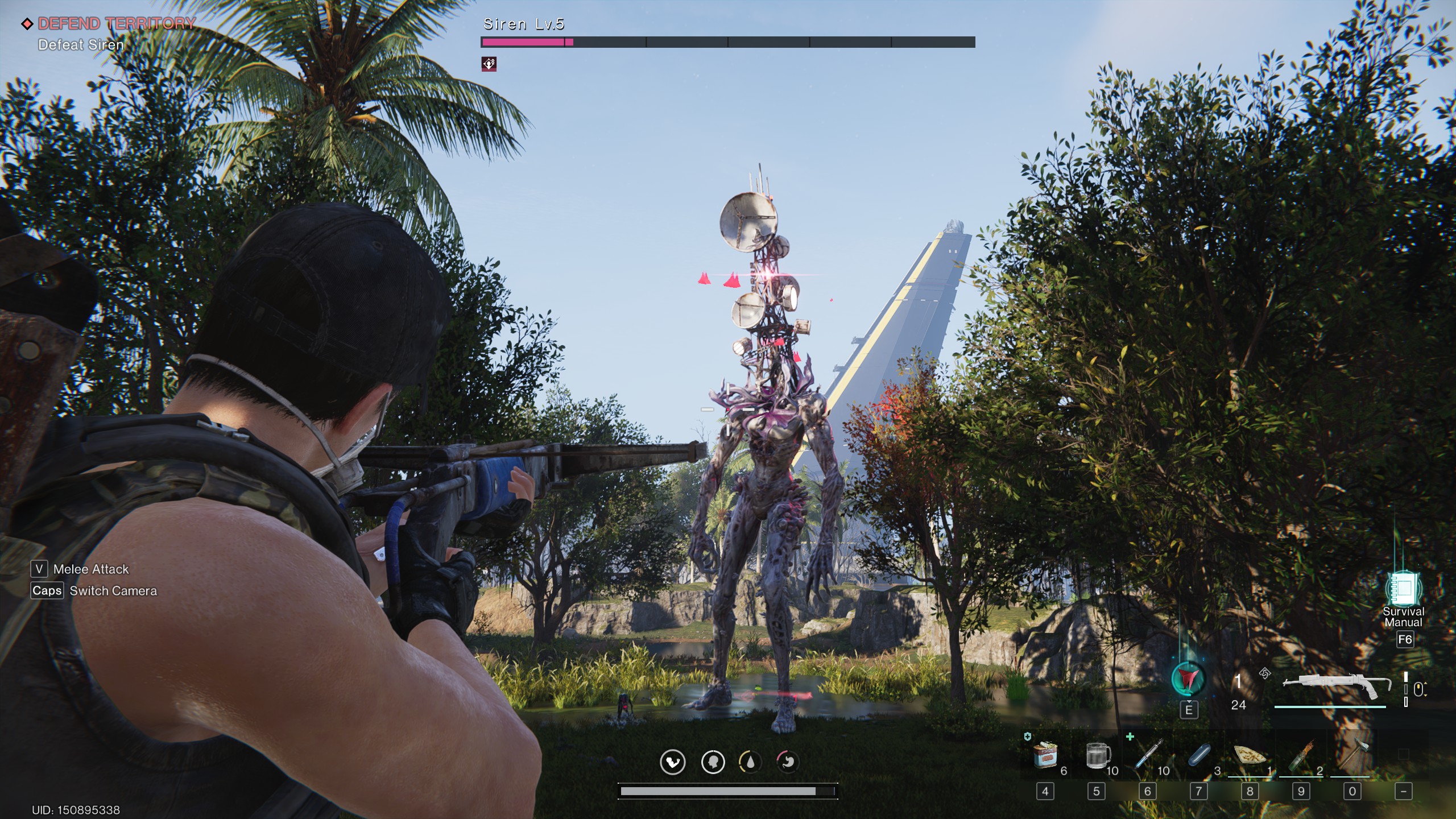
As a newly awakened meta-human, you'll need to fix things. Often by filling monsters with hot lead. But first you'll need to go over to that conspicuous copper mound and do some mining. A don't forget to chop down all the trees around it! Cue a long, drawn out sigh. Allow me to save up my big moan for later, though, because I'd be remiss not to mention that Once Human does, in fact, have quite a few things going for it.
The creature design is impeccable, for one. In fact, I'll go so far as to say that Once Human has Control beat in this regard. Control's Hiss is a cool concept, and when it interacts with paranatural objects things get enjoyably funky, but when it possesses humans the results are a bit more mundane. Spooky soldiers don't get me excited. I've cut down armies of them and would be entirely OK with never doing it again. The monstrosities mucking around in Once Human, though, are strikingly weird.
One of the first oddballs I encountered was part-man, part-briefcase, all business—specifically, the business of murdering me, a half-naked fella painstakingly made in the very robust character creator only minutes before. Thankfully, I had a machete that was also all business, and after slicing up my new pal I was able to use its briefcase-head like a gun, commanding it to spit out weaponised paper at other weirdos. Who's a Briefcase Wanker now?
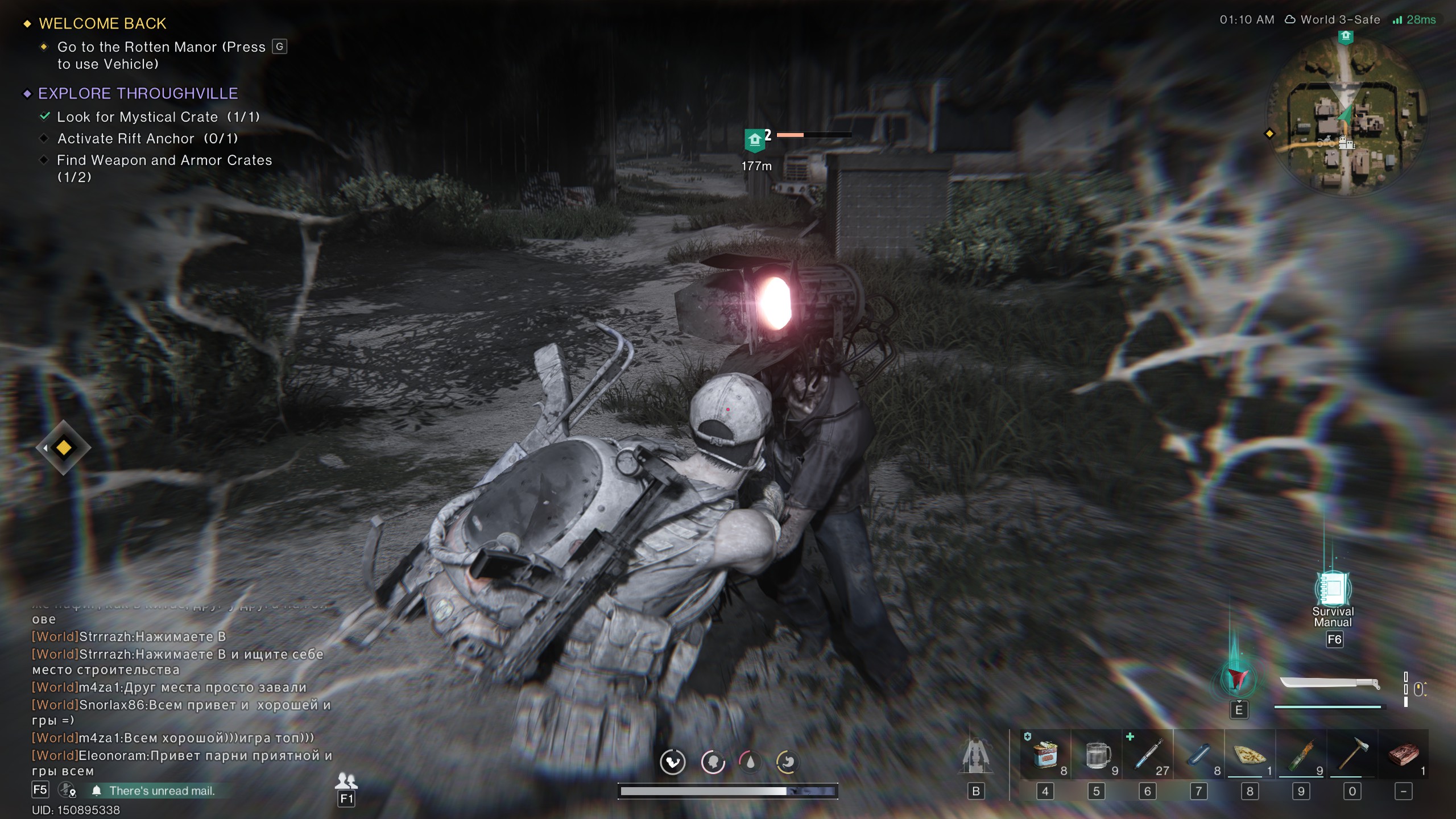
Granted, the enemy AI is pretty poor, with most of these unfortunate chimaeras content to just hang about rather than engage in some good old fashioned murder. In fairness, there are so many heavily-armed humans running around, you can hardly blame them for trying to avoid conflict. Maybe we're the real monsters? On second thought, the tentacled eldritch horrors and human-eating briefcase lads are probably the real monsters.
Freaky friends
Other Deviations include a gun-wielding llama toy, a frosty jellyfish and the skull of a dog.
On the subject of gun-toting humans, along with conventional weapons you'll also get access to more esoteric methods of creating mayhem, specifically Deviations—anomalies that you can capture and control. In the tutorial you get your first: a lovely little butterfly that's more than happy to engage in some bloodshed. These Deviations chill in your backpack, have rechargeable power levels, and come with a bunch of needs that affect their moods. In your base you put them in a little enclosure where they'll cheer up after a hard day's fighting. Other Deviations include a gun-wielding llama toy, a frosty jellyfish and the skull of a dog. Practically speaking, the Deviation system isn't a million miles away from Palworld's critters, but these buddies are more than just Pokémon riffs, elevated as they are by their delightful strangeness. There's a surreal, dream-like quality to them, often feeling out of place in this horror game, but also utterly appropriate given how reality has completely cut loose.
The biggest gaming news, reviews and hardware deals
Keep up to date with the most important stories and the best deals, as picked by the PC Gamer team.
Indeed, the whole world has the qualities of a fever dream, where everything is askew and fleeting, set to expire every six weeks as new scenarios kick off. Right now, a nightmarish entity is invading the world, which everyone's got to team up to stop (or ignore it and just build a house I guess?), with the servers at different stages of this conflict. New seasons will then introduce new threats, storylines and mechanics, starting players in a fresh world, but allowing them to keep things like blueprints, cosmetics and important currencies. Quest progress will also be remembered, but you'll be able to complete these quests again in a streamlined form to get the rewards again.
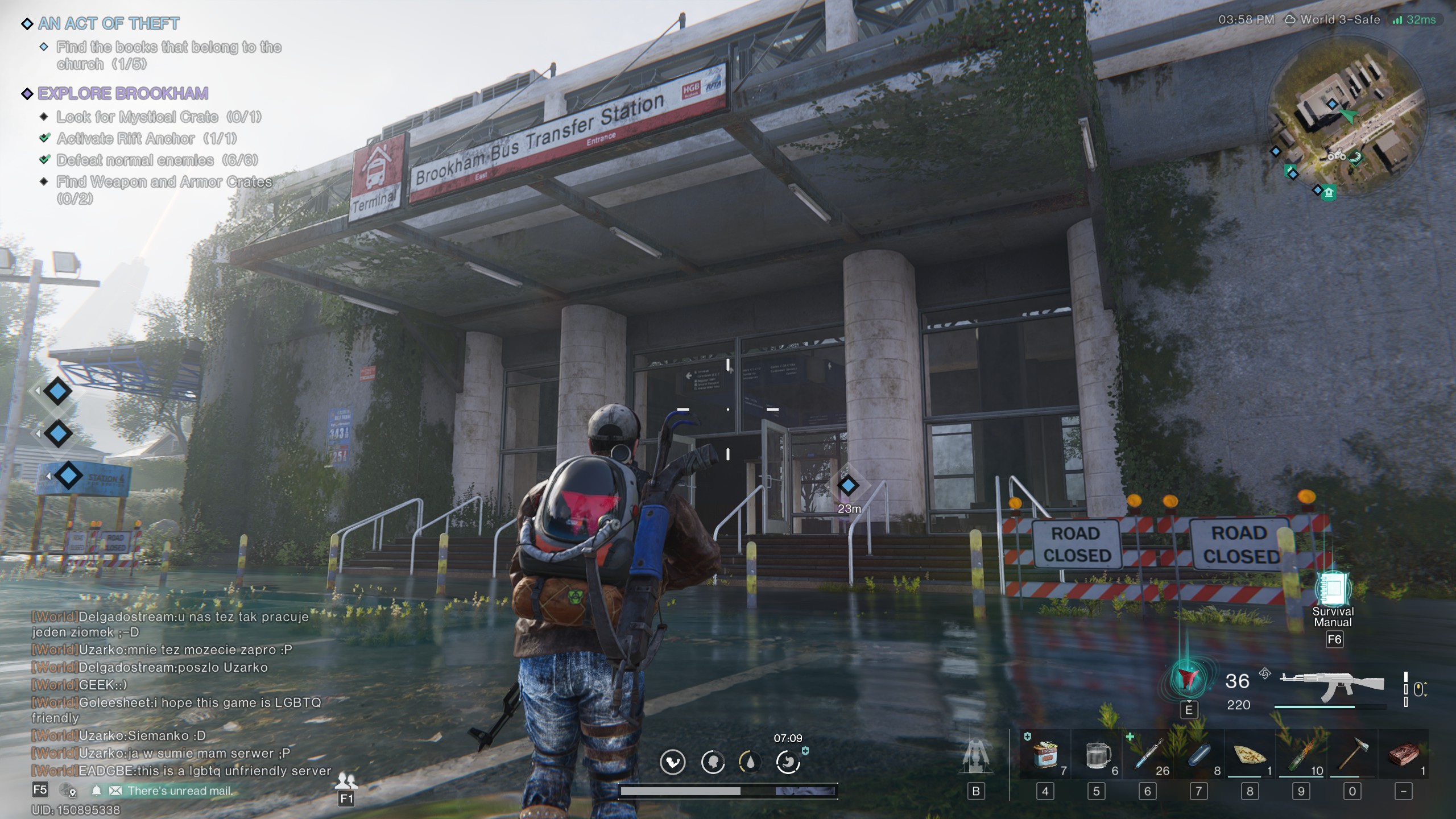
The structure creates a momentum that strikes the Goldilocks ideal, where things move at a brisk pace but without leaving players behind. Each phase of the scenario unlocks more areas, events and modes, crescendoing in a confrontation with the Big Bad, but these later phases don't cut off earlier activities. As things progress, acquisition of basic supplies actually increases, giving everyone, even the latecomers, a leg up. Critically, the six-week lifecycle seems like a potentially smart way to stop the servers from stagnating and becoming forever bloated with everyone's hideous bases. Next season I'll make sure to arrive before the big real estate rush.
God, those bases really are bloody ugly. This is where it all kinda falls apart for me. Dropping into my server, all I could see was half-finished campsites and weirdly out-of-place multi-story family homes, immediately destroying the post-apocalyptic sci-fi vibe that the developer-created ruins strive to achieve. On the surface this might sound in-keeping with a game where the world is wonky, but approaching a major quest location that's flanked by countless camps that look like generic Unreal assets isn't surreal—it just looks tacky. More than just spoiling the views, though, this whole system feels thematically at odds with the game's reality-bending horror.
Homes from hell
I just don't get the fantasy Once Human is selling here. Fight anomalies, survive in the wilderness, team up with other players to raid massive labs filled with cosmic nightmares, and then spend 20 hours building "a townhouse with a patio, kitchen, garage", to quote the Steam page. Sure, you can construct something less generic, but why? The answer is simple: Once Human is a survival game, and survival games need to let you build bases. Even if it doesn't remotely fit the themes of the game.
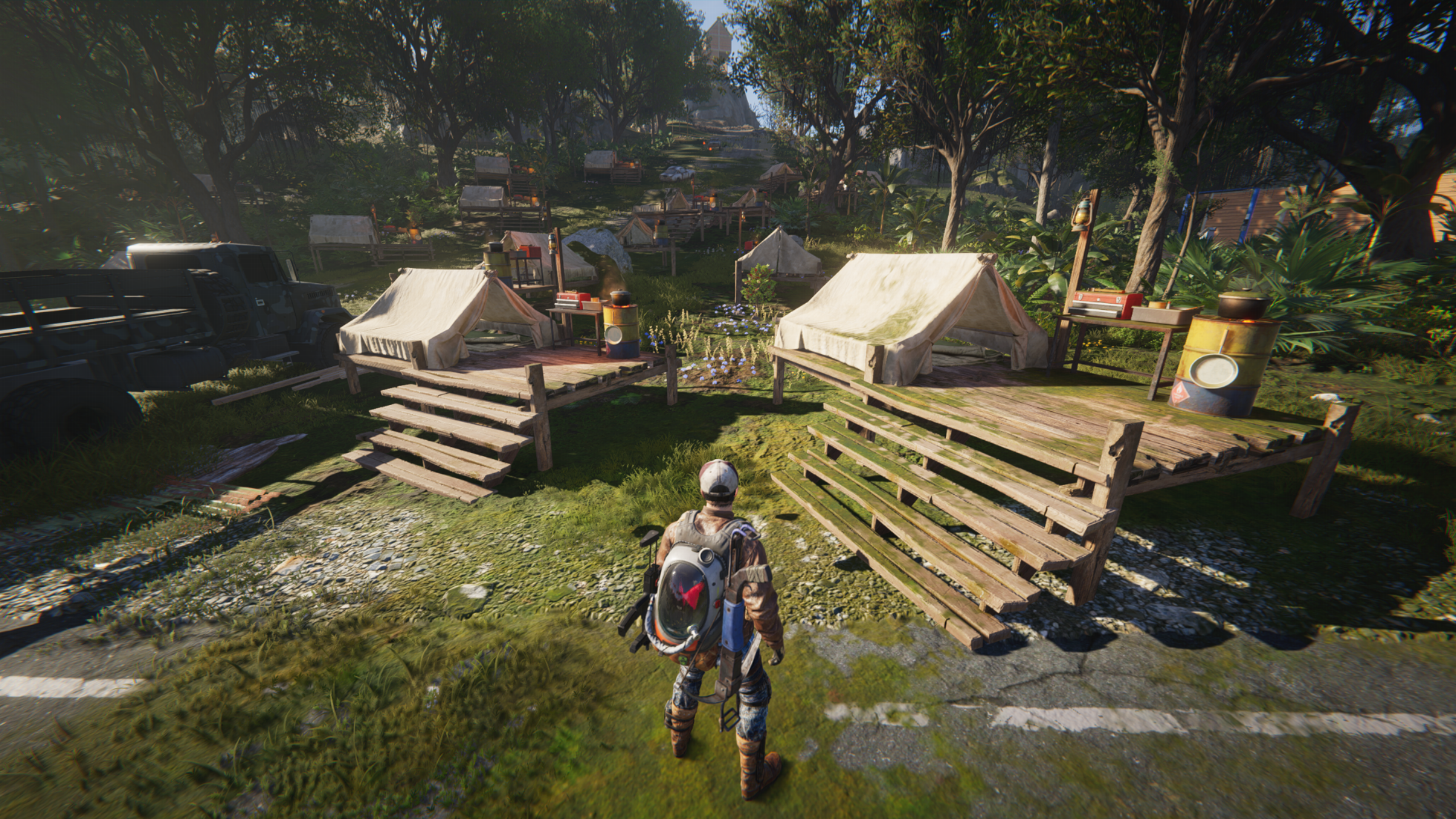
The moment the concept of base-building is introduced, it just feels jarring. You're in another dimension, learning about what's happened to the world and what your role is going to be, discovering weird powers and sci-fi conspiracies, and then you're told to chop down some trees, gather some gravel, and build a wee base. Only then are you allowed to fight a giant sentient communications array with its zombie pals. A little 30-second treat after your labours.
The moment the concept of base-building is introduced, it just feels jarring.
At least this should set your expectations, because it's pretty much how the game flows. Build a furnace and a workbench, then go do some cool shit, and then build another workbench and maybe craft a gun, then back to the fun. I imagine once you're more established there will be less busywork. But maybe not? There's certainly a lot of recipes, and an overarching progression system that will encourage you to keep building and tinkering forever.
I will make one concession here: Deviations do offer a fun twist on this dreary loop. See, not all Deviations are born to fight. There's a cute little bee who will do your farming for you, a friendly dinosaur who'll speed up your cooking, and a bunch of flying batteries that help with power generation—along with a whole bunch more. Ultimately, though, these funky little buddies merely augment systems that I wish I didn't have to engage with.
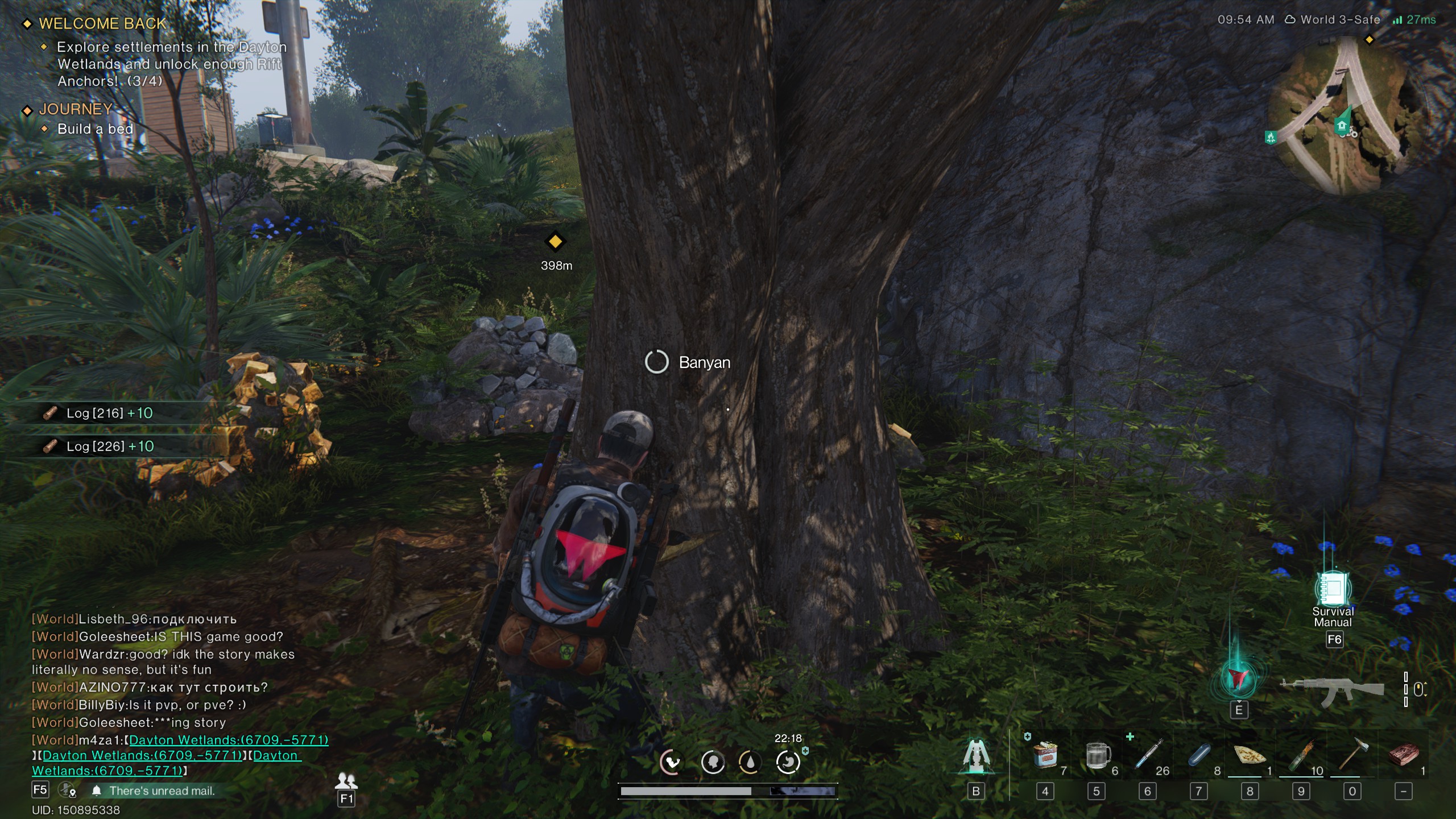
I know I'm just pulling an Old Man Yells at Cloud. The fact that there's an explosively popular survival game appearing every minute suggests that enough people still salivate at the prospect of turning wood into charcoal and then using that charcoal to turn raw ore into workable metal and then using that metal to make components for a gun and then maybe, just maybe, having enough time left over to actually shoot that gun before bedtime—and sometimes I'm even one of those people. I rather enjoyed making my handsome little homestead in Pax Dei recently, and I spent a long-ass time building increasingly large longhouses in Valheim. As much as survival games can be exhausting bores, they can also have soothing rhythms and inspire fun and creative building projects. But this survival model feels weirdly tacked on in Once Human, despite it being so full featured.
Survival has become too set in its ways. It's a genre at the mercy of a checklist. You don't need base building and massive, elaborate crafting lists to be a survival game. Ultimately, you just need scarcity and ingenuity: starting with very little, and scavenging what you can to succeed at your tasks. The Last of Us is a great example of this: it's absolutely a survival game, where struggle and scarcity of supplies drive it forward, but the survival elements play to its theme rather than eclipsing it.
Clock in
Once Human's setup is similarly perfect for a survival game, just not the kind of survival game it's trying to be. The weird friction at the heart of the more typical crafty, base-building model is that these games very quickly give up the survival conceit. Once you've found some locations where you know you can get lots of resources, and you've got a little factory up and running, you're no longer just surviving; you're working. Thus, survival games cease to be journeys full of challenges and risks and difficult decisions, instead transforming into rote jobs. And surely, if the post-apocalypse can give us anything, it's some time off work.
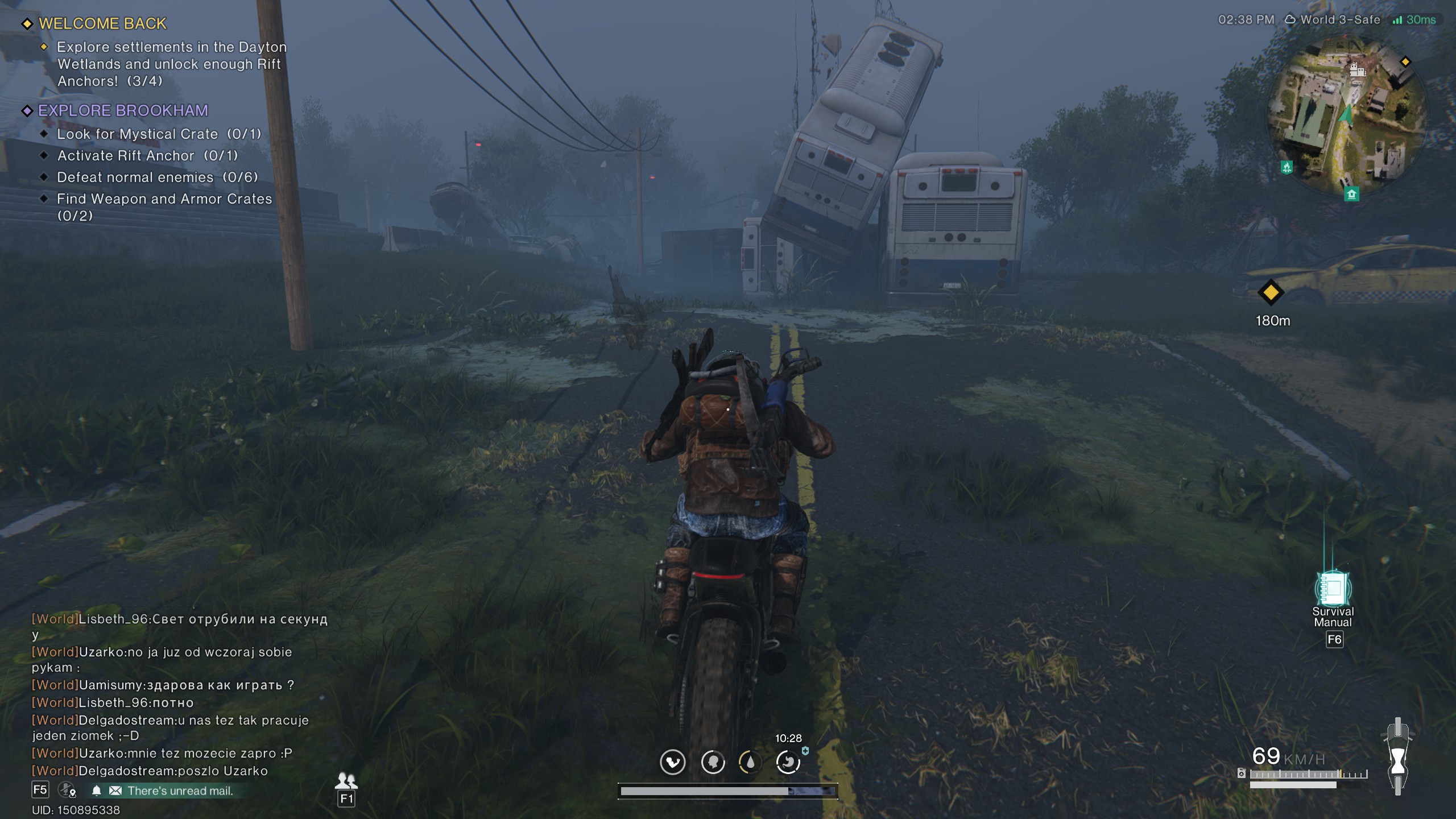
Playing it as something more akin to The Last of Us, I found myself forgetting my misgivings. Look, I'm not going to pretend it has the emotional stakes or resonance, or the narrative potency, of Naughty Dog's powerhouse, neither does it match Control's skillful mystery-weaving capabilities, yet open-ended exploration and questing is still absolutely a good time. In a rural village, I got into a scuffle with sentient scarecrows, and in a flooded town I gathered up ancient tomes to perform a ritual, all the while developing a clearer picture of this decaying world and building up my bulging bag of supplies—ensuring I remained healthy, well-fed and rich in bullets. But then I went home and had to make some ugly furniture.
Once Human is more of a free for all, crammed with players and their creations.
Another source of unwelcome friction stems from it being bloody hard to make survival work well in an MMO. Pax Dei is trying to accomplish that feat by only going hard on the survival element at the start, and eventually it's going to be more about creating societies and kingdoms, with economies and religions. Fallout 76 makes it work by only having 24 players in a single instance and by making camps persist only while you're online. Once Human is more of a free for all, crammed with players and their creations. And to facilitate this horde of gatherers and crafters, the world is overflowing with resources.
When I need copper—a very common crafting resource—in Fallout 76, I have to go to specific areas, usually ready for a fight, and even do a little bit of maths to figure out how much copper I'll need for whatever project I'm working on. If I repair my armour, will I have enough left over for ammo? I need to think about my journey and prioritise the most important things, or maybe trade with some other players. It's not a mindless endeavour. And yeah, sometimes that can feel like a slog, but I'll probably get to blow up some ghouls and there's a good chance I'll find an event or other players to muck around with.
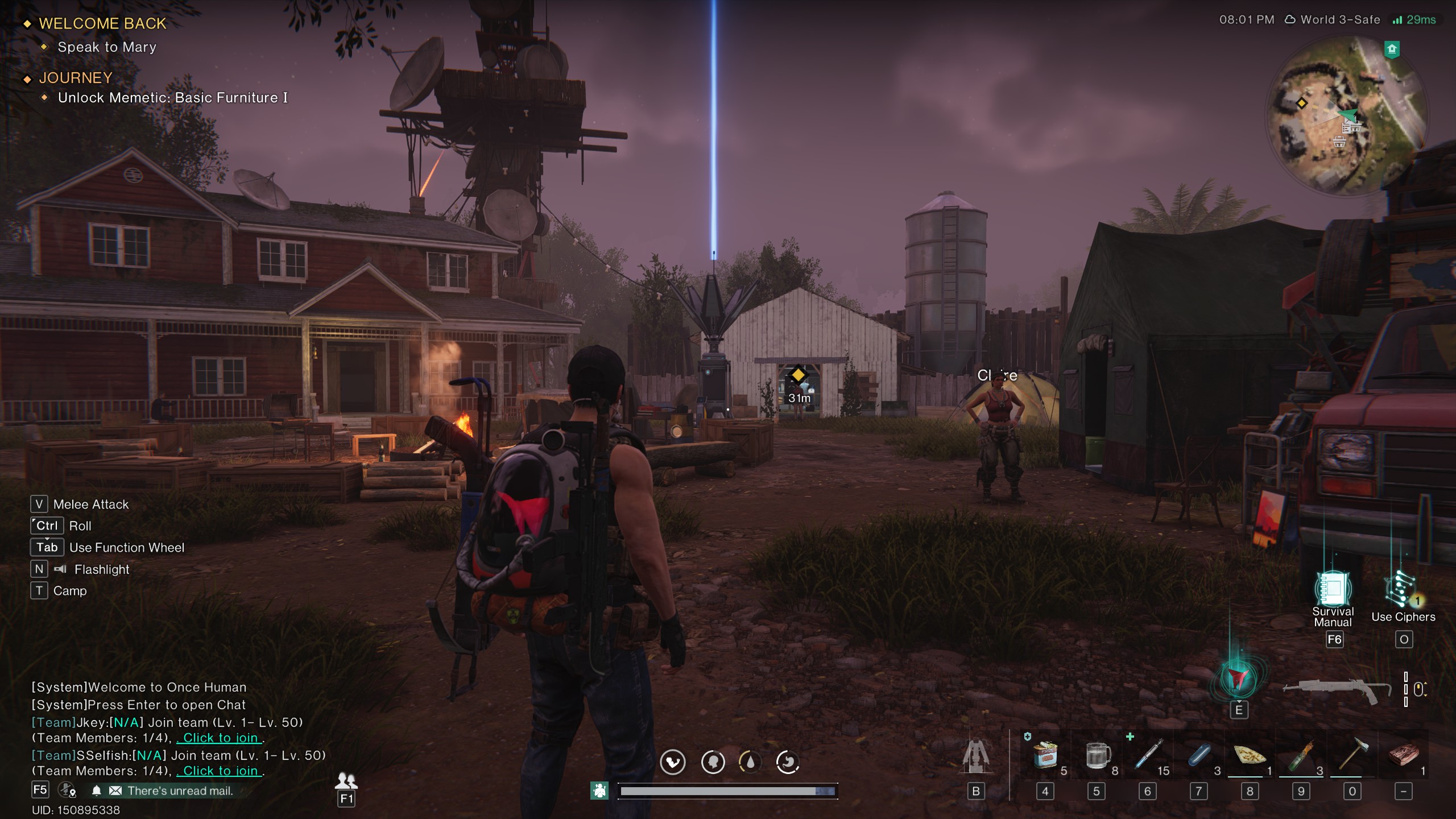
In Once Human I just pop outside my base and greet the ocean of copper and get to work. So far, I've spent a lot more time mindlessly gathering resources and bleeding from the eyes after staring at too many menus and being assaulted by the weirdly aggressive UI (nobody needs this many notifications) than I have embarking on any post-apocalyptic adventures, emphasising once again that this is basically just work.
It would be easy to just accept that Once Human isn't for me, but I'm annoyed because there's a game I want to play squashed between all the bullshit. As is so often the case, cool ideas get pushed off to the peripheries by whatever is trending. And I guess it's worked? Once Human, despite its mixed user reviews, is currently only slightly less popular than Elden Ring, which just received one of the best expansions ever made. I suspect that if this was just a multiplayer game with Control vibes and only light survival mechanics, it wouldn't be doing nearly as well. But I bet it would be rad.

Fraser is the UK online editor and has actually met The Internet in person. With over a decade of experience, he's been around the block a few times, serving as a freelancer, news editor and prolific reviewer. Strategy games have been a 30-year-long obsession, from tiny RTSs to sprawling political sims, and he never turns down the chance to rave about Total War or Crusader Kings. He's also been known to set up shop in the latest MMO and likes to wind down with an endlessly deep, systemic RPG. These days, when he's not editing, he can usually be found writing features that are 1,000 words too long or talking about his dog.

